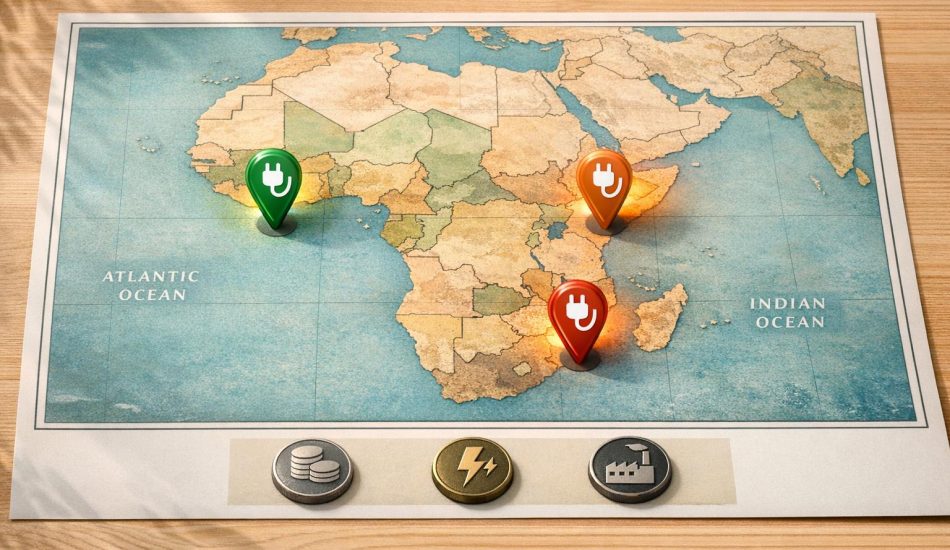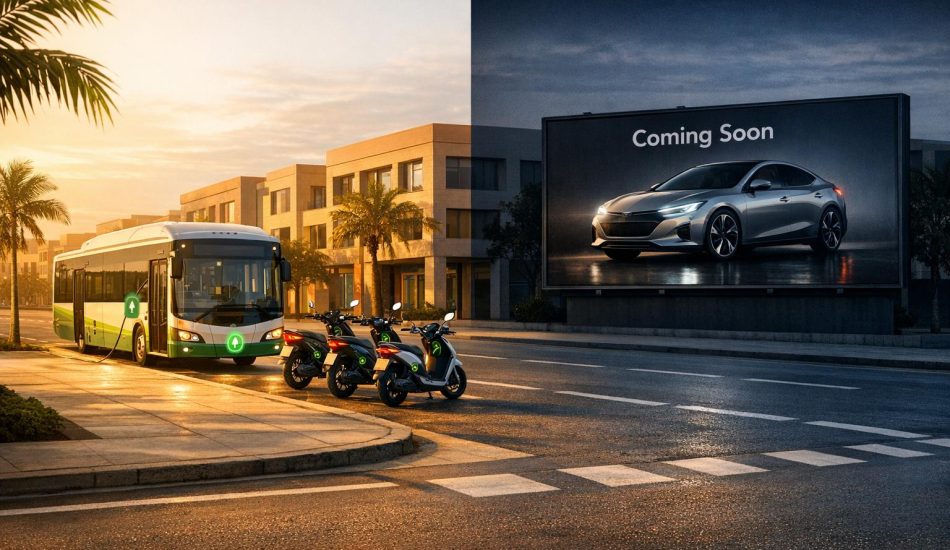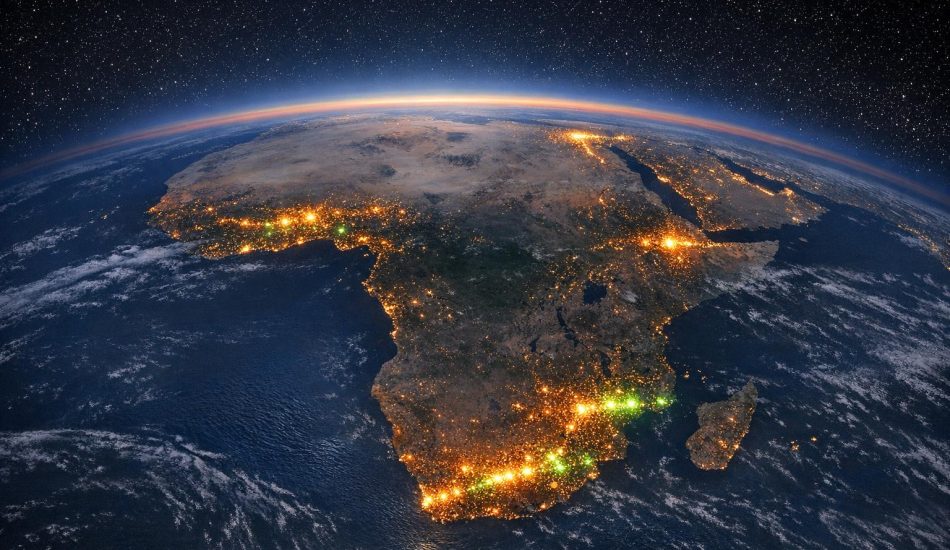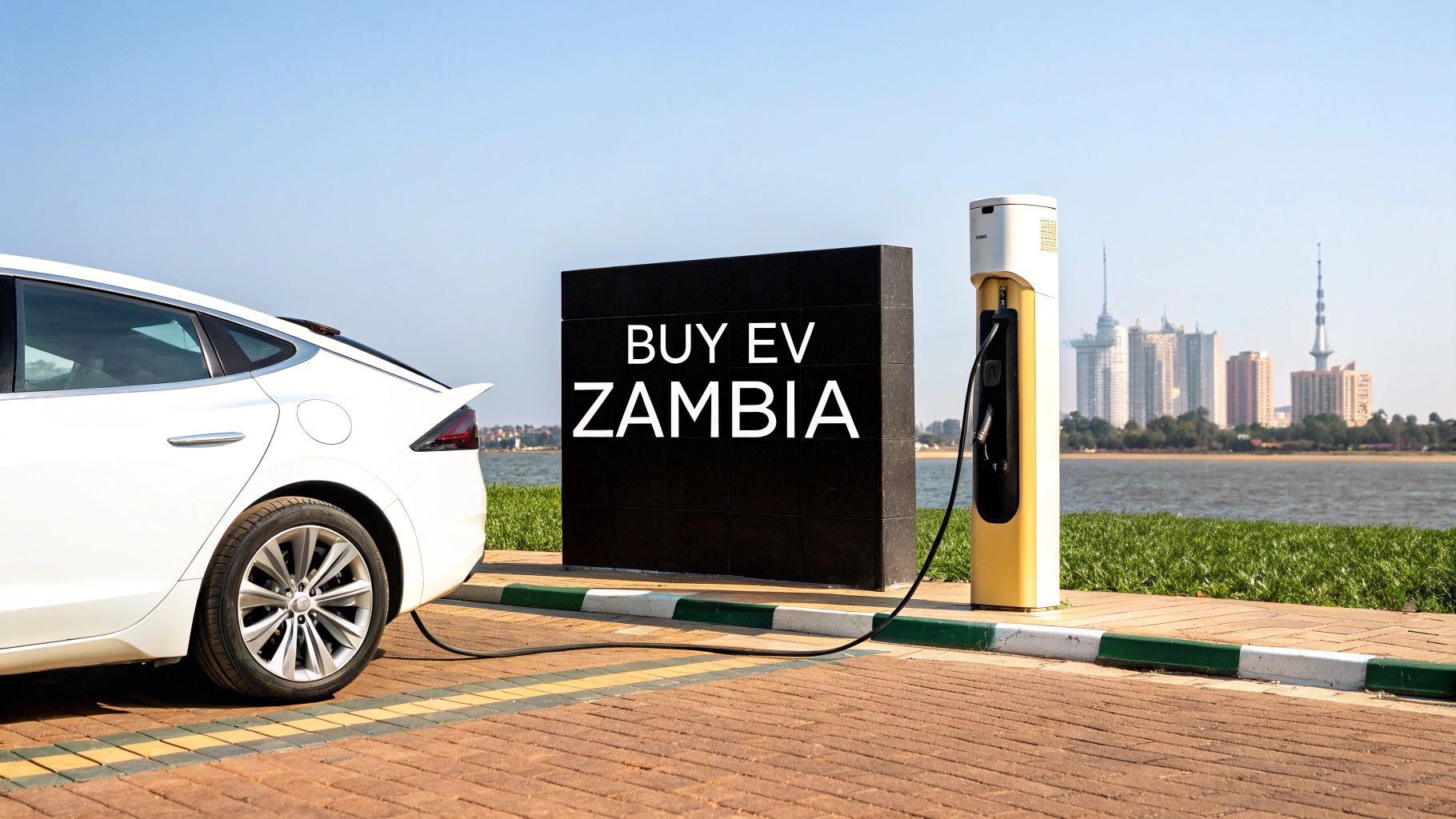
Thinking about buying an electric car in Zambia? It's a lot easier and more realistic than you might think. What used to feel like a complicated dream is now within reach for many of us, thanks to some smart government moves and a growing market. This guide will walk you through everything, step-by-step.
Why Electric Cars Make Sense in Zambia Right Now
Let's be honest, the move to electric vehicles (EVs) here isn't just about being trendy. It's a practical choice driven by real-world issues we all face. With the constant seesaw of fuel prices eating into our budgets, the idea of never visiting a petrol station again is pretty appealing. The long-term savings alone are a huge reason people are making the switch.
At the same time, there's a bigger conversation happening across the country about protecting our environment. The government has stepped up, creating policies to encourage cleaner transport. This support means that choosing an EV isn't just a good financial decision for you, but it's also a move that's backed by a national push for a greener future.
We’ll break it all down for you—from picking the right car for Zambian roads to handling the import process and getting it registered.
The Big Push: What's Driving the EV Boom?
So, what's really making this the perfect time to go electric? It comes down to a few key factors that have lined up perfectly.
-
Massive Cost Savings: The game-changer has been the government's decision to completely remove customs duties on imported electric vehicles. This single policy has slashed the upfront cost, putting EVs in the same price bracket as many popular petrol or diesel cars.
-
Escaping High Fuel Prices: We all feel the pinch when fuel prices go up. Charging an EV at home is significantly cheaper, and if you have solar, your running costs could drop to almost nothing. It's a way to take back control of your monthly expenses.
-
Charging is Getting Easier: The network of charging stations is still a work in progress, but it's growing. We're seeing more investment, especially in solar-powered stations popping up around Lusaka and other urban areas. This is tackling the "range anxiety" worry head-on.
-
More Cars to Choose From: A few years ago, your options were limited. Not anymore. The market is opening up, with brands like BYD bringing in affordable and reliable models, alongside offerings from more established automakers. Whether you need a small car for town or a family SUV, there's likely an EV for you.
Getting a handle on these points shows you're not just buying a new gadget. You're making a solid investment in a cheaper, more sustainable way to get around. This guide is here to give you the practical advice you need to do it right.
Getting to Grips with the EV Scene in Zambia
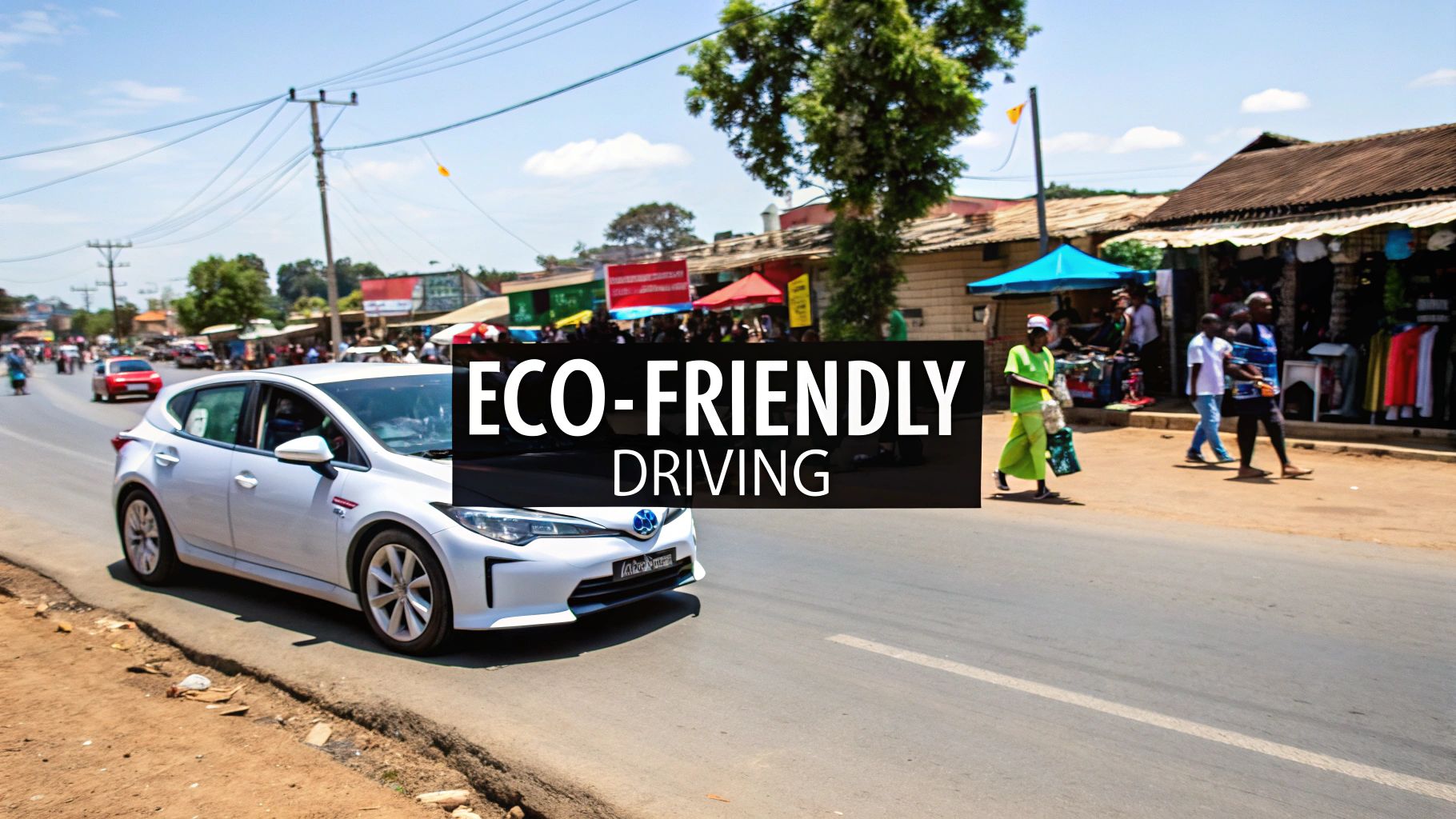
Before you even think about specific models, it’s worth taking a moment to understand what’s happening on the ground with electric vehicles here in Zambia. The market is buzzing, and knowing the key drivers behind this shift will help you make a much smarter decision when you finally decide to buy an electric car in Zambia.
The biggest game-changer has been the government's forward-thinking approach. In a bold move to spur on green transport, they completely scrapped customs duties on imported EVs. This wasn't some minor adjustment; it was a landmark policy that instantly made electric cars more affordable for thousands of Zambians.
This single incentive has lit a fire under the market. In fact, since the duties were dropped, Zambia has seen an incredible 334% surge in EV adoption. Think about that. The number of registered EVs jumped from just 62 at the start of 2024 to 269 by mid-2025, which shows you just how powerful this kind of government support can be.
What Kind of EVs Can You Actually Get?
With the biggest financial hurdle out of the way, the variety of electric cars landing in Zambia has really opened up. You’re no longer stuck with just one or two obscure options. The market now has something for different budgets and needs, coming from two main sources.
First, brand-new EVs are making a real splash. You've got companies like BYD entering the market with practical, affordable models like the BYD Seagull—a perfect little city runabout for places like Lusaka. Going new gets you the latest tech, a full warranty, and that peace of mind from being the first owner.
Then there’s the second-hand import market, which is still a massive and popular route for getting an EV. Many buyers bring in nearly-new or well-maintained used models from places like Japan and the UK. This often gives you access to a much wider range of makes and models at a lower price, making it a seriously attractive option for many people.
Whether you go for a shiny new model or a trusted import, the main thing to remember is that you have more choice than ever. The diversity in the market means you can find a car that genuinely fits your life and your budget.
When you're looking for an EV, a few models have started to become quite common on Zambian roads. To give you a better idea, here's a quick comparison of what you might find.
Popular EV Models Available in Zambia
This table compares some of the popular electric car models becoming available in the Zambian market, helping you make an informed choice based on range, price, and what they're best suited for.
| EV Model (Example) | Estimated Price Range (USD) | Average Range (km) | Best For |
|---|---|---|---|
| Nissan Leaf | $8,000 – $15,000 (Used) | 150 – 250 | City commuting and first-time EV owners |
| BYD Seagull | $20,000 – $25,000 (New) | 305 | Affordable new car for daily urban driving |
| Tesla Model 3 | $25,000 – $40,000 (Used) | 400 – 550 | Long-range travel and performance enthusiasts |
| BMW i3 | $15,000 – $22,000 (Used) | 200 – 260 | Premium feel, unique design, and city driving |
As you can see, the options range from budget-friendly used imports perfect for daily errands to brand-new models that offer the latest features. Your final choice will really come down to balancing your budget with your daily driving needs.
The Reality of Charging Your Car
Okay, let's talk about the elephant in the room: charging. It’s the number one question on every potential buyer’s mind. The honest answer is that Zambia's charging network is a work in progress, but the progress is real and moving in the right direction.
Both the government and private companies are actively investing in building out the infrastructure. A fantastic example is the recent $20 million agreement signed by the Ministry of Green Economy and Environment to roll out solar-powered charging stations in our main cities. This is a brilliant move for Zambia, using our abundant sunshine to create a charging network that isn't totally reliant on the grid.
So, what does day-to-day charging look like for a typical EV owner right now?
- Charging at Home: This is where most of the magic happens. The vast majority of drivers simply plug their car in overnight. It’s the cheapest, most convenient way to ensure you have a "full tank" every morning.
- Public Charging Hubs: You’ll find these popping up more and more at shopping centres, office parks, and fuel stations in cities like Lusaka, Kitwe, and Ndola. They usually have faster chargers, which are great for a quick top-up while you're out and about.
- Planning Longer Trips: Driving between cities still requires a bit of planning. But with new stations being added along major highways, those long journeys are becoming easier all the time.
With this background on the tax benefits, the types of cars available, and the charging situation, you have a realistic picture. It shows that the decision to buy an electric car in Zambia is no longer a distant dream—it's a practical, smart choice you can make today.
Your Guide to Purchasing and Importing an EV
Alright, let's get to the exciting part: bringing your new electric car home. The process to buy an electric car in Zambia and get it imported might look a bit daunting at first, but when you take it one step at a time, it's perfectly manageable. I'll walk you through the real-world practicalities, from finding a seller you can trust to sorting out the final paperwork right here in Zambia.
This isn't about guesswork. It's about having a clear roadmap. With the right info, you'll sidestep the common mistakes and make sure everything goes smoothly, from the seller’s lot—wherever that is in the world—to your own driveway.
Finding a Trustworthy International Dealer
The first big decision is where you'll actually buy the car. While our local market is definitely growing, you'll often find a much wider selection and better prices by importing a used EV from established markets like Japan, the United Kingdom, or even South Africa. The secret is to partner with a reputable dealer.
Stick to established online car exporters with a long track record of happy customers and clear, transparent processes. A good seller will never hesitate to provide full vehicle inspection reports, plenty of high-resolution photos, and—for Japanese cars—a verifiable auction grade sheet. This paperwork is your proof of the vehicle's true condition, so don't even consider a car without it.
Insider Tip: Don't just take the seller's website at face value. Do some digging. Look for independent reviews on forums or in social media groups. Hearing directly from other Zambians who have used a particular dealer can give you the real story on their reliability and after-sales service.
Verifying Your Vehicle Before You Buy
Before a single Kwacha leaves your bank account, you need to do your homework. A vehicle history report is absolutely essential. It can uncover critical details that photos just can't show you, like hidden accident damage, incorrect mileage, or a complicated ownership history.
But don't stop at the paperwork. Ask the seller for a live video walk-around of the car. This is your chance to see the EV in real-time, hear the motor (or the quiet hum), and check that all the lights, screens, and gadgets are working as they should. It’s a simple request that adds a huge amount of confidence to an overseas purchase.
This visual gives you a great starting point for thinking about which EV model is the right fit.
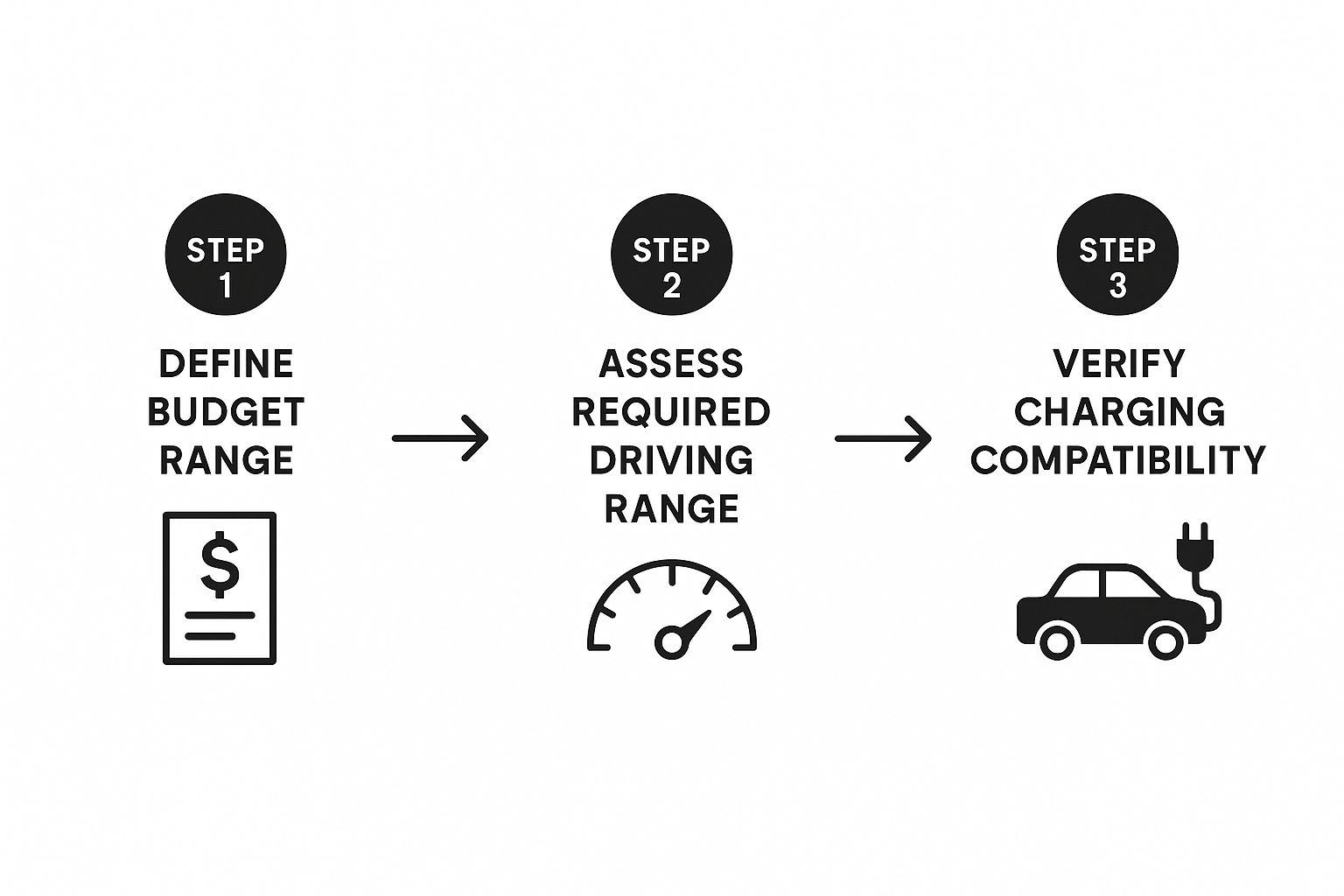
As you can see, the sweet spot is finding a balance between your budget, your daily driving needs, and the charging options you have available.
Understanding Shipping and Logistics
Once you've bought your car, the next step is getting it to Zambia. Most vehicles bound for our country come through the Port of Durban in South Africa and then travel overland. You’ll generally have two shipping methods to choose from.
- Roll-on/Roll-off (RoRo): This is the go-to for most people because it’s the most affordable. Your car is simply driven onto a massive, purpose-built ship and secured for the voyage.
- Container Shipping: This offers superior protection because your vehicle is locked inside its own shipping container. It does cost more, but it's a wise choice if you're buying a high-value EV and want total security.
Whichever method you pick, make sure you get comprehensive marine insurance. The basic liability cover from shipping lines is often shockingly low. Proper insurance protects you against damage or, in the worst-case scenario, total loss during transit. It's well worth the small extra cost for peace of mind.
Navigating Customs Clearance with ZRA
This is the part that often worries first-time importers, but it doesn't need to be a nightmare. In fact, the Zambian government has rolled out a fantastic incentive for anyone bringing in an EV.
As part of the national push for green energy, the customs duty for fully electric vehicles is 0%. This is a massive saving that makes importing an EV a very smart financial move. However, "zero duty" doesn't mean "zero tax." You'll still need to budget for a few other costs.
Here’s what you can expect to pay:
- Value Added Tax (VAT): Calculated on the CIF value (Cost, Insurance, and Freight) of your EV.
- Excise Duty: Another smaller tax that may be applied.
- Clearing Agent Fees: This is what you pay the professional who handles all the ZRA paperwork for you.
For a complete look at all the costs and documents involved, take a look at our detailed Zambia EV Import Guide 2025: Tariffs, Standards & Procedures.
Once the ship arrives, your car needs to be carefully unloaded and guided through customs. This is where having an experienced team on the ground is absolutely vital. They handle all the port-side admin, ensure your EV is treated with care, and manage the handover for its final journey inland to you.
This is exactly why hiring a professional clearing agent is a non-negotiable. These are the experts who deal with the Zambia Revenue Authority (ZRA) every single day. They know how to get your car cleared without delays or unexpected costs. A good agent will give you a full, itemised quote upfront so you know exactly what the final bill will be. Their fee is a small price to pay for a hassle-free experience.
How to Finance Your Electric Vehicle
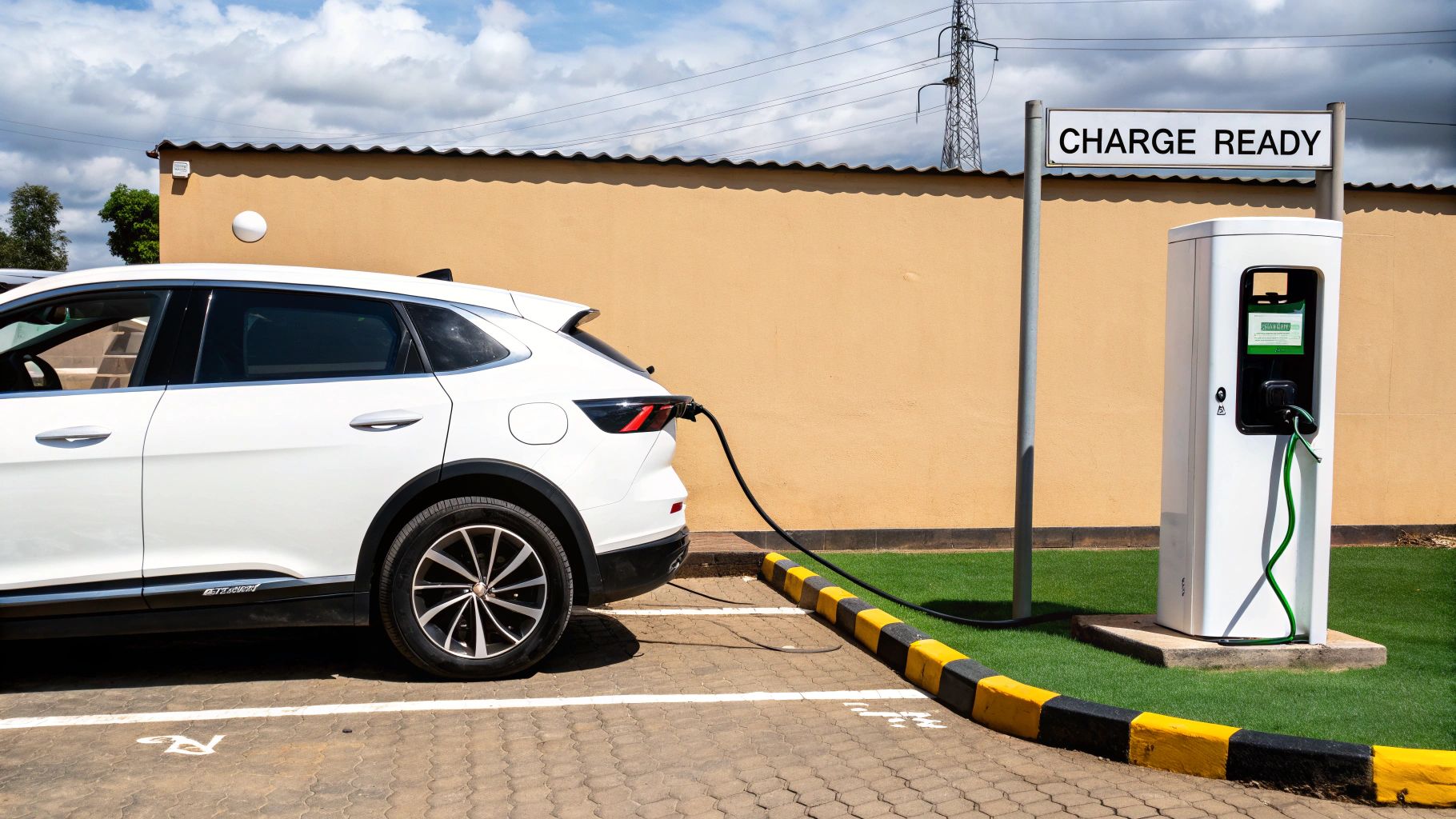
Let’s talk about the elephant in the room: the price tag. For many of us looking to buy an electric car in Zambia, the upfront cost is the biggest hurdle. The long-term savings are fantastic, no doubt, but you first need to figure out how to pay for the car.
The good news is, you have several solid options. The financial scene for EVs is slowly but surely changing, and it’s no longer just about standard car loans. Zambian buyers can now explore a few different routes to make owning an EV a reality.
Traditional Bank Loans
This is the path most people know. Nearly every major bank in Zambia offers vehicle financing. The key, however, is to understand their specific requirements, especially when you’re importing a car. They will absolutely need to see a clear pro-forma invoice from the seller and solid proof that you can handle the monthly repayments.
But let’s be realistic about interest rates. Right now, personal and vehicle loan rates can be quite high, often falling somewhere between 25% and 45%. A rate like that can massively inflate the total cost of your car over time, so it's absolutely vital to shop around.
Asset Financing Specialists
Beyond the high-street banks, you have asset financing companies. These firms are experts in funding high-value items like vehicles and machinery. From my experience, they often have a much better grasp of the import process and can sometimes offer more flexible terms than a traditional bank.
These specialists frequently partner with vehicle importers and online marketplaces, which can really streamline the application. Their focus is squarely on the value of the asset—your shiny new EV—which can sometimes work to your advantage.
My Two Cents: Don't just go with the first quote you get. I always advise people to get offers from at least two different banks and one asset financing company. This way, you can properly compare interest rates, loan terms, and any hidden fees before you sign on the dotted line.
How to Tackle High Interest Rates
Seeing a high interest rate shouldn't immediately kill the dream. With a bit of smart planning, you can soften the blow and make your loan much more manageable. The basic idea is simple: borrow less and pay it back faster.
Here are a couple of practical strategies that really work:
- Put Down More Money: This is the single best way to lower your monthly payments and the total interest you’ll pay. A larger down payment reduces the principal loan amount, which makes you a much less risky prospect for any lender.
- Ask About Green Financing: As EVs start to gain traction, some financial institutions are beginning to offer "green loans." These can come with slightly better interest rates to encourage people to adopt cleaner tech. It never hurts to ask your banker if they have any special packages for electric vehicles.
Combining these tactics can make the whole financing puzzle a lot less daunting. If you’re looking for more ideas, check out our guide on 5 ways to finance your electric vehicle purchase in Africa.
Putting Together a Strong Loan Application
When you walk into a bank, especially for an imported EV, you need to look like a serious, well-prepared borrower. A messy application is a surefire way to cause delays or even get a flat-out rejection.
To make the best impression, get all your paperwork in order before you even start. Lenders will almost always ask for:
- Proof of Income: Your last few payslips or, if you're self-employed, recent business financials.
- Identification: Your National Registration Card (NRC) and a valid driver's licence.
- Pro-Forma Invoice: The official quote for the car from the seller in Japan or the UK.
- Bank Statements: Typically for the last three to six months to show your financial history.
Having these documents ready to go shows you’re organised and makes the lender's job easier, which can speed up the whole approval process. A solid application signals that you're financially responsible and dramatically increases your chances of getting the keys to your new EV.
Registering and Charging Your New EV
So, your electric car has finally cleared customs and is sitting in your driveway. That's a fantastic feeling! But before you start enjoying those silent, fuel-free drives around Lusaka, there are a couple of final hoops to jump through: getting it legally on the road and figuring out your charging plan. This is where the real journey of EV ownership begins.
Your first stop is the Road Transport and Safety Agency (RTSA) to get the car registered. The process is pretty straightforward for anyone who has registered a car before. You'll need to have all your paperwork in order—that means your import documents, proof of ownership, and the customs clearance papers you just received. Don't forget, you'll also need to get a comprehensive insurance policy sorted out, which is a must-have for any new vehicle in Zambia.
Powering Up: At Home and On the Go
With the legal stuff out of the way, it's time to think about the practical side of things: keeping your car charged.
For most people, the best and cheapest way to do this is by installing a dedicated charger at home. Think of it like your mobile phone—you just plug it in when you get home in the evening and wake up to a full "tank" every single morning. It really is that simple.
Of course, you won't always be charging at home. The good news is that finding a public charger is getting easier by the day, especially in the bigger cities. We're seeing a lot of investment pouring into this space, which is making a huge difference.
A great example is the $20 million agreement between the Ministry of Green Economy and Environment and EVC Investments. They're building a whole network of new solar-powered EV charging stations, which makes the infrastructure stronger and less reliant on the main grid.
This kind of forward-thinking, along with big brands like BYD and Pilatus Motors setting up shop here, is making the decision to buy an electric car in Zambia a genuinely practical choice. It's exciting to see, and you can read more about how these investments are boosting Zambia's green economy. The key takeaway is that the charging network is actually growing to meet the demand.
A Few Tips for Smart EV Ownership
To really get the most out of your new EV, it helps to build a few good habits. Our warm Zambian climate can have an effect on battery life, but a little bit of know-how goes a long way.
- Look After Your Battery: For day-to-day driving, try to keep your battery charged between 20% and 80%. It’s a small trick that helps protect its health and capacity over the long haul.
- Plan Your Big Trips: Driving from, say, Kitwe to Lusaka? Use an app like PlugShare to see where the charging stations are along your route. It's always smart to plan ahead and leave yourself a bit of a buffer.
- Watch Your Savings Grow: Make a note of how much you're spending on electricity to charge the car and compare it to your old petrol receipts. The difference can be staggering, and it's a great reminder of why you made the switch.
Once you’ve got the registration sorted and a charging routine that works for you, you’re all set. Welcome to the world of electric driving in Zambia
Zambia's Big Bet on the Global EV Future

When you choose to buy an electric car in Zambia, you’re not just getting a new set of wheels. You're actually plugging into a massive national vision, one that positions the country right at the centre of the global switch to electric mobility. This is about more than just cleaner air; it's a strategic economic play that could reshape Zambia's future.
This long-term commitment from the government should give you real confidence in your purchase. Knowing that the country is all-in on building a complete EV ecosystem—from the mines to the charging stations on our streets—means the support for your car will only grow stronger over time.
From Copper Mines to Car Batteries
Everyone knows Zambia for its copper. As it turns out, copper is absolutely essential for every single electric vehicle on the planet. You'll find it in the high-voltage batteries, the complex wiring, and the powerful electric motors. This simple fact puts Zambia in an incredibly strong position.
Instead of just shipping raw copper ore overseas, the government is pushing to bring the next stages of production right here. Think about it: as Africa's second-largest copper producer, Zambia is sitting on some of the world's most critical mineral deposits.
The government is already in talks with major global car brands and investors about setting up factories for EV components near our mines. This isn't just a small idea; it's a plan to completely change our role from a raw material supplier to a key manufacturing player in the global EV supply chain.
This strategic shift means your EV isn’t just a car; it's a vote of confidence in a future where Zambian resources power Zambian industry. It connects your personal transport choice to a larger story of national economic empowerment.
Building a Hub for Green Technology
The ambition doesn't stop with batteries. The bigger picture is to create an environment that pulls in investment across the entire green technology sector. This includes everything from local EV assembly plants to the development of sophisticated charging infrastructure.
By making itself a strategic and welcoming place for EV-related industries, Zambia is aiming to become a regional leader. A key part of this strategy involves creating special economic zones specifically designed to support these new manufacturing ventures. We're already seeing how special economic zones for EV manufacturing are emerging in Zambia and the DRC.
For you, the EV owner, this focus on building a local industry has direct and practical benefits:
- Future-Proofing Your Ride: It ensures long-term support, with the real possibility of locally made parts and a growing network of specialised technicians.
- A Stronger Economy: A more diverse economy creates jobs, drives innovation, and brings stability that benefits everyone.
- Making EVs More Affordable: As local production increases, the cost of electric cars and their components is likely to become much more competitive.
Ultimately, your decision to buy an electric car in Zambia is a perfect fit with this forward-thinking national strategy. You’re not just following a trend; you're becoming an early part of a movement where Zambia is actively carving out its own powerful role on the world stage.
Your Top Questions Answered: Importing an EV to Zambia
Alright, you're close to making the switch, but a few questions are probably rattling around in your head. It’s completely normal. Let’s tackle the most common ones we hear from buyers just like you, so you can move forward with total confidence.
What Will I Actually Pay in Taxes and Duties?
This is the big one. While the 0% customs duty is a massive saving, it doesn't mean you're completely off the hook for taxes.
You’ll still need to cover the Value Added Tax (VAT), which is calculated on the total CIF value (that’s the Cost of the car, plus Insurance and Freight). There might also be a small excise duty. The key is to avoid any last-minute financial shocks.
My advice: Never proceed without a fully itemised quote from your clearing agent. A professional will break down every single kwacha, from shipping to the final tax bill, so you know exactly what you're in for.
How Do I Find a Trustworthy Used EV from Japan or the UK?
Sifting through overseas sellers can feel daunting, but you can protect yourself. Stick to well-known online car exporters with a solid track record and plenty of positive reviews from other Zambian buyers.
A good seller will always provide:
- A comprehensive vehicle inspection report.
- Plenty of high-resolution photos and videos.
- A verifiable auction grade sheet (this is crucial for Japanese imports).
If you want an extra layer of peace of mind, team up with a local import agent here in Zambia. They have trusted partners they've worked with for years and can handle the entire process, from vetting the car to getting it to your doorstep.
Is the Power Grid Here Stable Enough for Charging at Home?
It's a fair question, especially with load shedding being a reality. But in practice, it’s very manageable. Most EV owners simply plug in overnight when the grid is most stable and electricity tariffs are often cheaper.
A smart home charger can make this even easier by automatically scheduling charging for these off-peak times. Plus, the growing network of solar-powered public charging stations gives you a great backup plan that's completely independent of the grid. It’s getting easier and more practical to own an EV here every day.
Ready to find your perfect electric car? Explore a curated selection of EVs ideal for Zambian roads at EV24.africa and let our team handle the entire import process for you. Start your search today on EV24.africa.


